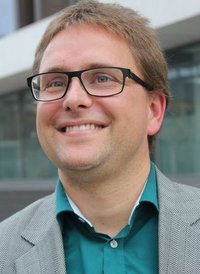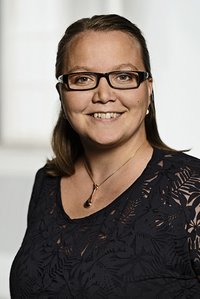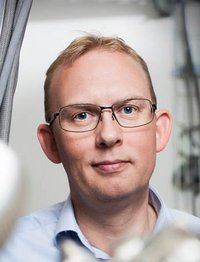Researchers from iNANO and Department of Chemistry receive grants for Green Breakthrough
Independent Research Fund Denmark supports four research projects with researchers from iNANO and Department of Chemistry at the helm. From self-cooling batteries to environmentally friendly magnets, these projects may pave the way for a greener future. What the projects have in common is that they are visionary initiatives that could be a step further in our approach to energy storage and sustainable technology.

Independent Research Fund Denmark (DFF) has awarded grants to four innovative research projects led by researchers from the Interdisciplinary Nanoscience Centre (iNANO) and the Department of Chemistry at Aarhus University. These projects will take part in the work towards a more sustainable future by addressing key challenges in green energy and technology.
Improving electrodes for hydrogen production
Professor Jeppe Vang Lauritsen from iNANO will use a new technique for in-situ photoelectron spectroscopy (XPS) to study how water splitting into hydrogen works on metal electrodes.
This project, funded with DKK 3,168,000, seeks to understand the chemical processes on industrial Ni-based electrodes, with the aim of improving their activity and stability in the electrolysis process.

Environmentally friendly magnets
Professor Mogens Christensen has received DKK 3,163,706 for the project "Geoinspired Magnets from Rust to Riches (GEOMAG-R2R)".
This initiative aims to develop environmentally friendly ceramic magnets by using natural geological processes to create high-performance magnets. This method could potentially replace rare earth magnets and reduce the overall environmental impact.
Self-cooling batteries

Professor Dorthe Bomholdt Ravnsbæk from Aarhus University is working on the project "In-situ battery cooling - utilizing thermodynamics of ion storage for thermal management (CoolIon)", which has received DKK 3,166,678 in funding.
This project focuses on the development of self-cooling batteries by integrating materials that can absorb heat while contributing to battery capacity. This initiative could potentially solve the challenges of heat generation in rechargeable batteries and improve their durability and performance.
Development of Na-ion battery technology
Finally, Professor Dorthe Ravnsbæk is part of a project led by Assistant Professor Arghya Bhowmik from the Technical University of Denmark entitled "Autonomous agents of Discovery for earth-Abundant Na-ion battery cathodes (ADANA)".
This project, funded with DKK 3,167,334, focuses on the development of sodium-ion (Na-ion) battery technology as an alternative to expensive and environmentally harmful Li-ion batteries. By combining machine learning and quantum mechanical simulations, the researchers seek to find materials for sustainable Na-ion battery cathodes and create a long-lasting battery solution for both electric vehicles and stationary storage devices.
In the press release from DFF, Minister for Higher Education and Science Christina Egelund and Chairman of the Board Jørgen Frøkiær both express their enthusiasm for this year's awards. These projects represent not only the future of research, but also a possible path to a more sustainable and green planet. We look forward to following these projects and their contribution to the green transition.
Read the press release from DFF (in Danish only).
Visit the iNANO website to read more about these exciting initiatives.
For further information, please contact:
Professor Jeppe Vang Lauritsen
Interdisciplinary Nanoscience Center (iNANO)
Aarhus University
Mail: jvang@inano.au.dk
Professor Mogens Christensen
Department of Chemistry
Interdisciplinary Nanoscience Center (iNANO)
Aarhus University
Mail: mch@chem.au.dk
Professor Dorthe Ravnsbæk
Department of Chemistry
Interdisciplinary Nanoscience Center (iNANO)
Aarhus University
Mail: dorthe@chem.au.dk

